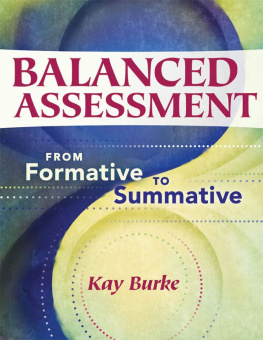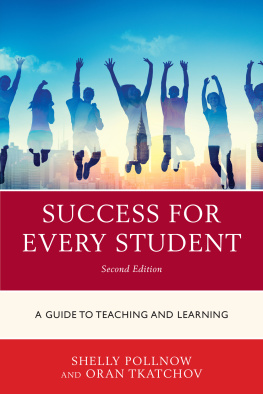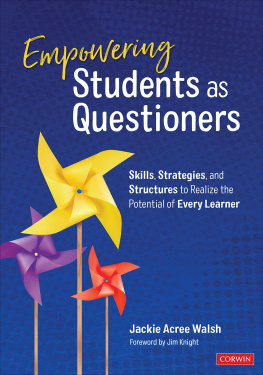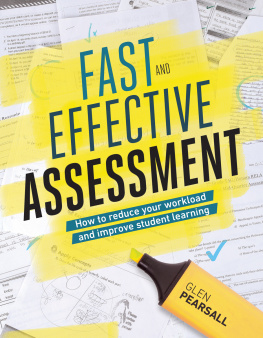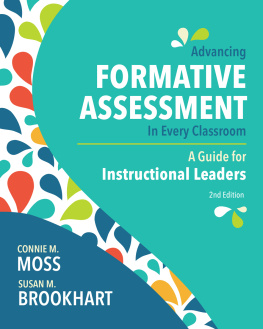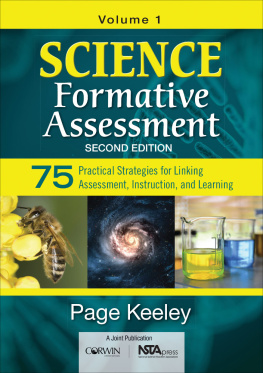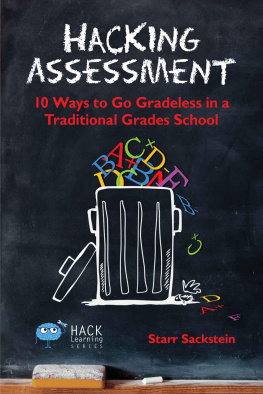EMBEDDED
formative
assessment
DYLAN WILIAM

Copyright 2011 by Solution Tree Press
All rights reserved, including the right of reproduction of this book in whole or in part in any form.
555 North Morton Street
Bloomington, IN 47404
800.733.6786 (toll free) / 812.336.7700
FAX: 812.336.7790
email:
solution-tree.com
Printed in the United States of America
15 14 13 12 11 1 2 3 4 5
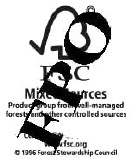
Library of Congress Cataloging-in-Publication Data
Wiliam, Dylan.
Embedded formative assessment / Dylan Wiliam.
p. cm.
Includes bibliographical references.
ISBN 978-1-934009-30-7 (perfect bound) -- ISBN 978-1-935249-33-7 (library edition) 1. Effective teaching. 2. Educational tests and measurements. 3. Academic achievement. I. Title
LB1025.3.W47 2011
371.26--dc22
2011011784
Solution Tree
Jeffrey C. Jones, CEO & President
Solution Tree Press
President: Douglas M. Rife
Publisher: Robert D. Clouse
Vice President of Production: Gretchen Knapp
Managing Production Editor: Caroline Wise
Senior Production Editor: Lesley Bolton
Proofreader: Elisabeth Abrams
Text and Cover Designer: Jenn Taylor
For Siobhn Leahy
Acknowledgments

This book is the result of a thirty-five-year journey that has taken me from public school teacher to teacher educator to researcher and university administrator. Given the length of this journey, you will not be surprised that I have a lot of people to thank. First, the students at Christopher Wren School and North Westminster Community School in London taught me most of what I know about learning. The research I have read and carried out since then has done little more than help me make sense of what I learned there. Second are the teachers I have worked with in those two schools and in the extended networks of teachers of which I have been a part. As someone who went straight from a bachelors degree to the classroom, with no training or preparation, I was fortunate to start teaching in one of Londons toughest schoolsfortunate because every teacher in that school struggled and was willing to talk about their struggles. It is only subsequently that I have realized how lucky I was, because that openness is not found everywhere.
Mentioning individuals is always invidious, but I owe particular debts of gratitude to Sarah Sharkey and Jerry Hardy (Christopher Wren School) and Dick Gmiterek (North Westminster Community School). When I joined the University of London, I lucked out again, being mentored by two great thinkers about educationfirst, Margaret Brown and later, Paul Black. As well as being extraordinary academics, they are two of the nicest people one could ever hope to meet, and their generosity to younger academics is a model I have tried to emulate. I am also grateful to the editorial staff at Solution Tree, and particularly Lesley Bolton, for all the work they have done in getting my manuscript to the finished book you have before you. Finally, and most importantly, my greatest thanks go to my partner, Siobhn Leahy. We first met at a mathematics teachers conference over thirty years ago, and for thirty years, she has been my greatest inspiration, my greatest support, and has kept me grounded in the realities of daily school life. That is why the book is dedicated to her.
Solution Tree Press would like to thank the following reviewers:
Travis Bracht
Director of Student Learning
Francis Howell School District
St. Charles, Missouri
Bernice Burroughs
Principal
The St. Johnsbury School
St. Johnsbury, Vermont
Peggy Clark
Educational Consultant
The Schultz Center for Teaching and Leadership
Jacksonville, Florida
Eileen Depka
Assistant Superintendent of Educational Services
School District of Elmbrook
Brookfield, Wisconsin
Roger Jenni
Testing and Assessment Coordinator
Northfield Public Schools ISD 659
Northfield, Minnesota
Sheila Larson
Curriculum Director
Fowlerville Community Schools
Fowlerville, Michigan
Kimberly Young
Consultant, Office of Educational Assessment and Accountability
Michigan Department of Education
Lansing, Michigan
Table of Contents

CHAPTER 1
Why Educational Achievement Matters
CHAPTER 2
The Case for Formative Assessment
CHAPTER 3
Clarifying, Sharing, and Understanding Learning Intentions and Success Criteria
CHAPTER 4
Eliciting Evidence of Learners Achievement
CHAPTER 5
Providing Feedback That Moves Learning Forward
CHAPTER 6
Activating Students as Instructional Resources for One Another
CHAPTER 7
Activating Students as Owners of Their Own Learning
About the Author

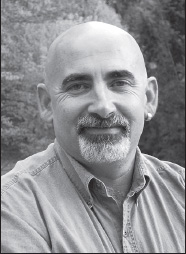
Dylan Wiliam, PhD, is a consultant who works with educators in North America, the United Kingdom, and many other countries to develop effective, research-based formative assessment practices. He is former deputy director of the Institute of Education at the University of London. From teaching in urban public schools to directing a large-scale testing program to serving in university administration, his professional path has led to a variety of positions at the forefront of education. Dr. Wiliam was also, from 2003 to 2006, senior research director at the Educational Testing Service in Princeton, New Jersey.
During his early years of teaching in inner-city classrooms, Dr. Wiliam focused on physics and mathematics. He later joined the faculty of Chelsea College, University of London, which later became part of Kings College London. Here, he worked on developing innovative assessment schemes in mathematics before accepting leadership of the Kings College Mathematics Education Program.
For three years, Dr. Wiliam served as the academic coordinator of the Consortium for Assessment and Testing in Schools, which developed a variety of assessments for the national curriculum of England and Wales. He then returned to Kings College to serve as dean of the School of Education before being promoted to assistant principal of the college.
In 1998, he coauthored a major review of research evidence on formative assessment with Paul Black and has worked with many teachers in the United Kingdom and United States on developing formative assessment practices to support learning.
In addition to a doctor of education, Dr. Wiliam holds numerous degrees in mathematics and mathematics education. To learn more about Dr. Wiliams work, visit www.dylanwiliam.net .
To book Dr. Wiliam for professional development, contact .
Introduction




